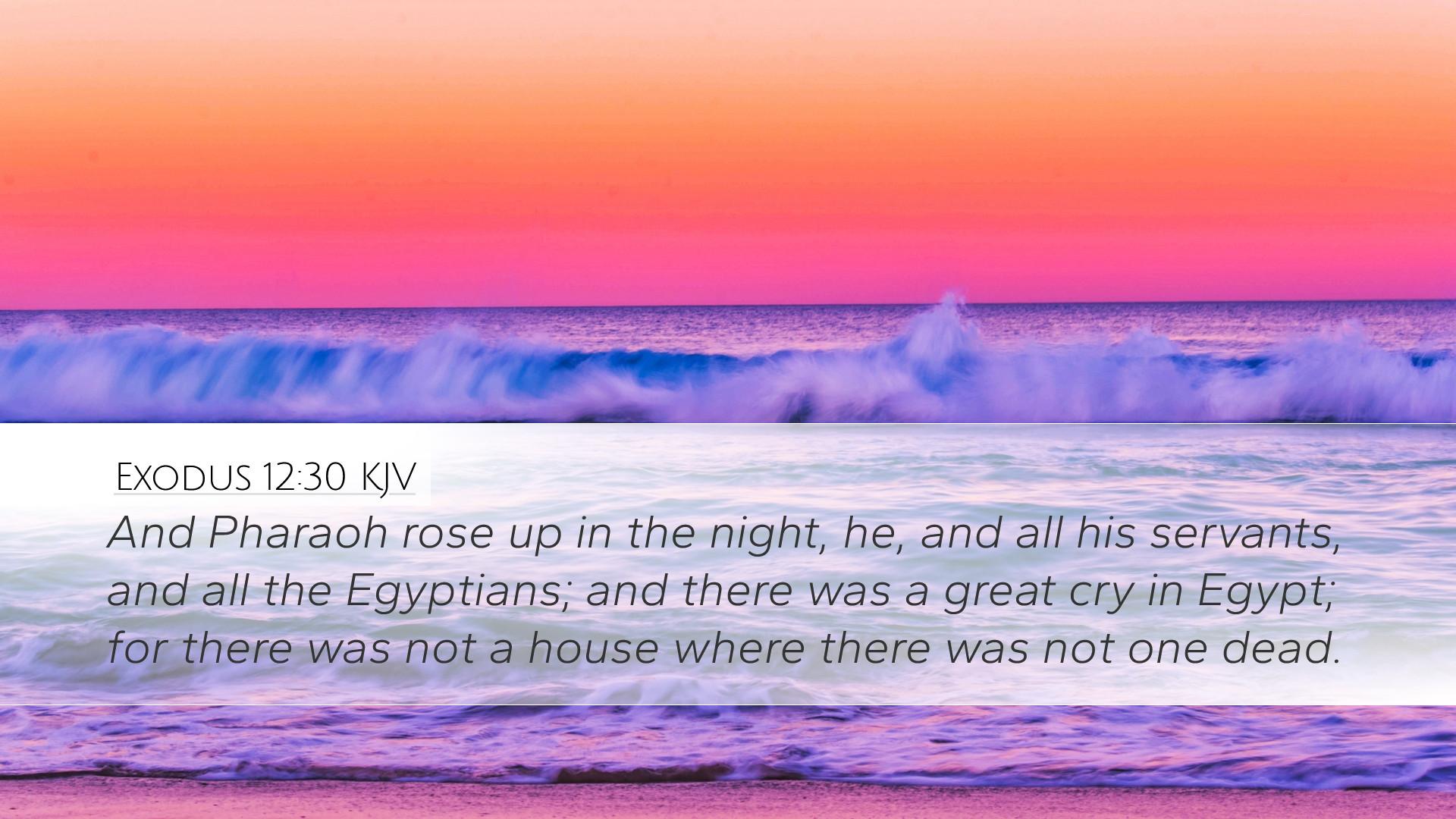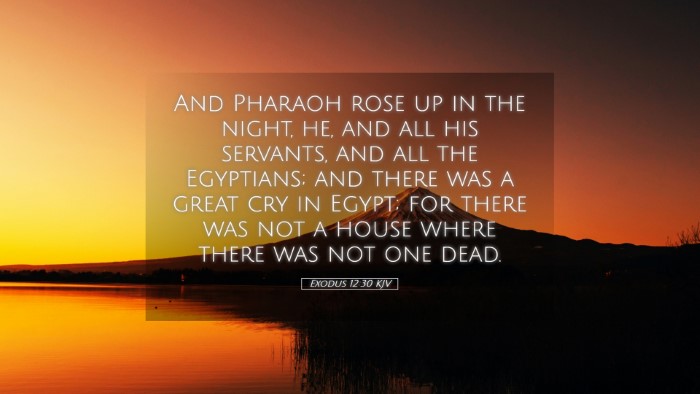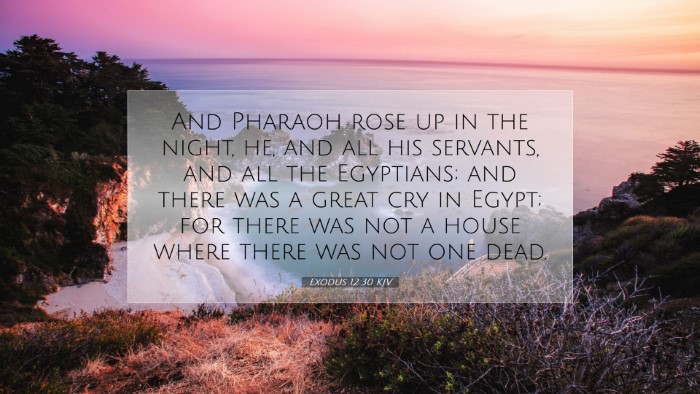Exodus 12:30 - Commentary and Insights
Exodus 12:30 states: "And Pharaoh rose up in the night, he, and all his servants, and all the Egyptians; and there was a great cry in Egypt; for there was not a house where there was not one dead."
Contextual Overview
This verse occurs in the narrative surrounding the tenth plague upon Egypt, which was the death of the firstborn. God had been directing Moses to warn Pharaoh repeatedly, and this climactic event serves as a fulcrum for the liberation of the Israelites from bondage.
Matthew Henry's Commentary
Matthew Henry emphasizes the profound sorrow that enveloped Egypt following this decisive night. He notes that:
- The universal judgment: Henry points out that the phrase "there was not a house where there was not one dead" showcases the severity of God's judgment upon Egypt for their oppression of His people.
- Pharaoh's reaction: He highlights the shift in Pharaoh’s response, noting the king’s anguish and the realization of God's sovereignty. Pharaoh, once unyielding, is depicted here as a defeated ruler, poignantly illustrating the futility of resisting divine will.
- The cry of despair: The "great cry in Egypt" symbolizes the collective pain and anguish. It serves not only as a reaction to loss but also as a recognition of God's power and a warning to all nations of the potential consequences of oppression.
Albert Barnes' Commentary
Albert Barnes provides a theological perspective on this verse, elaborating on several key themes:
- Divine justice: Barnes notes that this catastrophic event reflects God's just nature. He interprets the deaths as a necessary consequence for Pharaoh's stubbornness and the oppression of Israel, indicating that divine retribution is inevitable when people act contrary to God's commands.
- The implications for Israel: Barnes further explains that while the Egyptians were suffering, the Israelites were saved by the blood of the lamb, highlighting the distinction God made between His people and their oppressors. This foreshadows the New Testament themes of sacrifice and redemption.
- The emotional impact: He describes the scene as one of deep emotional turmoil, stressing the psychological and spiritual ramifications on the Egyptians which serve to remind future generations of the consequences of disobedience to God.
Adam Clarke's Commentary
Adam Clarke provides a more detailed analysis and draws upon historical context:
- The timing of the event: Clarke points out the significance of the timing, noting that this night was a complete turning point for Israel's liberation. It emphasizes that God was active in human history, and He executes judgment at a divinely appointed time.
- Contrast in outcomes: Clarke draws a stark contrast between the Egyptians and the Israelites, underscoring how obedience to God's commands results in salvation. The blood of the lamb applied to their doorposts ensured that they would be spared from the judgment that fell upon Egypt.
- The broader implications: He also connects this event to the larger narrative of salvation history, suggesting that this moment would become a defining feature in the identity of Israel, celebrated in the Passover and foreshadowing Christ's sacrifice.
Overall Theological Implications
The commentary on Exodus 12:30 provides several critical insights for pastors, theologians, and scholars:
- The holiness of God: This passage starkly represents God's holiness and justice, calling humanity to recognize the seriousness of sin and the consequences of disobedience.
- Redemption and sacrifice: This narrative serves as a precursor to the New Testament, where the sacrificial lamb is fulfilled in Christ, emphasizing themes of redemption that resonate through ages.
- The urgency of proclamation: Both warnings and messages of hope are essential components in the narrative; thus, believers are encouraged to be diligent in proclaiming the truths of God’s Word alongside His promises of deliverance.
Conclusion
Exodus 12:30 is a powerful verse that illustrates the serious burden of sin and the merciful deliverance God provides to those who heed His command. The reflections from Matthew Henry, Albert Barnes, and Adam Clarke together highlight the universal nature of God's judgment while also illustrating His redemptive love. This balance invites believers to reverence God and seek His mercy through Christ, who, like the Passover lamb, offers salvation to all who believe.


